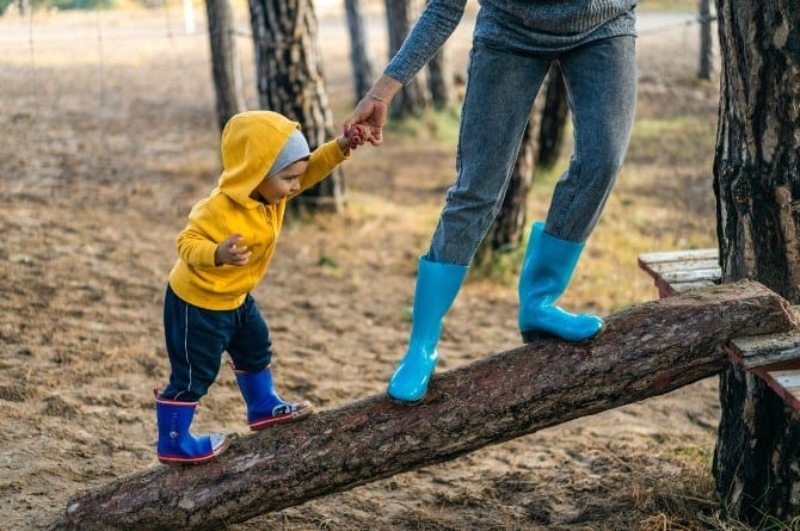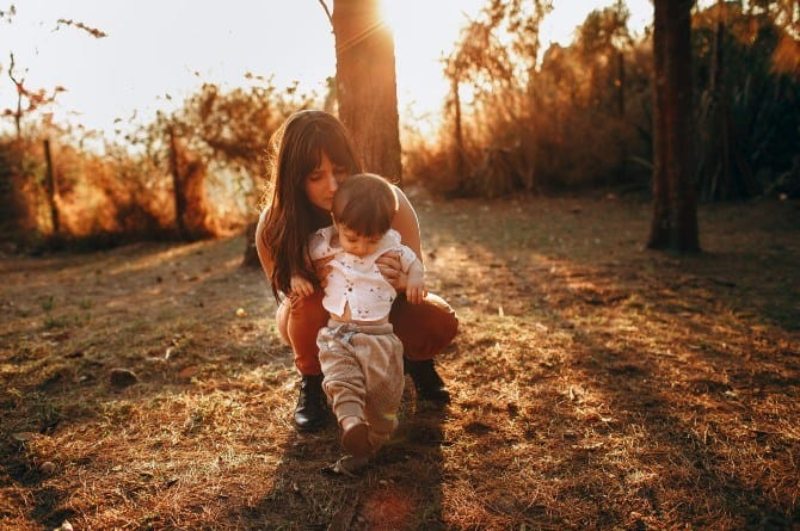Is there such a thing as walking too early for babies?


Your baby’s first steps are a big moment for him and you. He’s turning into a toddler and if he manages to hit his milestones earlier than other babies, you should be a proud parent. In fact, a study in the journal Pediatrics suggests that if there are signs baby will walk soon or if his other motor skills like crawling and standing, develop early on, he is destined for success in life.
However, this may not be true for all kids and no one child should be compared with another, especially when it comes to growth and development. Which is probably why the same study also says that infants who start walking later have also grown normally without any concerns in their intelligence or motor skills.
The fact is that there’s no such thing as walking too early for babies. But, there are some things that you need to be aware of when it comes to your baby taking his first steps.

As shared, there will be early signs baby will walk soon and a baby that starts walking early is nothing to be concerned about. In fact, you should be elated about your little one’s early milestone, which possibly means your little one will be a curious child going forward.
Those are all traits that need encouragement as walking will open a whole new world for your child.
Babies typically take their first steps on an average anywhere between 9 and 12 months. They usually develop the skill and strength to walk by the time they turn 14-15 months old. However, not each child develops at the same pace.
On average, children are found taking their first assisted steps by the age of nine months, developing stronger muscles and coordination early on. Some babies do not take their first steps until 20 months.
Nevertheless, children walking late are found to be equally normal with their intelligence and motoring skills.

Your baby will show signs of getting ready to take the next step, quite literally, as early as six months. They usually start to sit without any support at this age and can also transfer objects from one hand to the other.
They start developing their skills further from hereon in the journey of walking independently. Here are the four stages of walking you should know about.
Your baby will learn to sit up straight at the age of six months and stay that way to play as their muscular strength increases.
By the age of nine months, your baby has developed about 70 percent of the mass from the hips up, and the legs need a lot of strength to lift the torso. At this age, you will find your baby pulling furniture in the house to get up and stand on his legs.
Cruising is the part where your baby will start moving around the house assisted by holding on to the furniture or the wall. This is an extremely crucial phase and most enjoyable for any parent. For the child too, it is an important milestone and you will find them brimming with confidence as the horizon widens with every step.
And finally, your child develops enough strength to start walking on their own unassisted. Your little one has finally found the ability to balance himself on one foot when lifting the other.
Beginning to walk is not less than a milestone in your child’s life and it’s extremely important to capture this landmark moment. It’s a completely new task for your child that is testing his strength and ability, and all he needs from you is encouragement.

The average age for children to start walking is around 14-15 months, which can be pushed till the age of two. However, late walking in babies could also be triggered by a number of other concerns. These include:
It’s not necessary that your child will learn and develop the same strength and motor skills as other children. Some children start walking a couple of months later and that’s completely normal, too.
During this phase, it’s important as a parent to not push your child to achieve these goals before they are ready to do so on their own. Pushing a child to do something they are not ready for can result in injuries or delay the process altogether.
Remember that walking is as big a step as it gets for your baby and instills more confidence in them. As a parent, you need to encourage them to ensure they can practice in a safe environment. Every child needs their own pace to walk, grow and nurture and you need to give them time and lots of attention to do so on their own.
Just be sure to keep a track of your child’s physical development with the pediatrician for professional guidance and support.
This article was first published in theAsianparent.